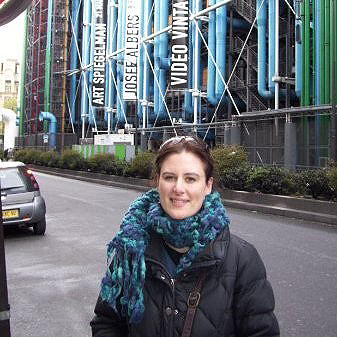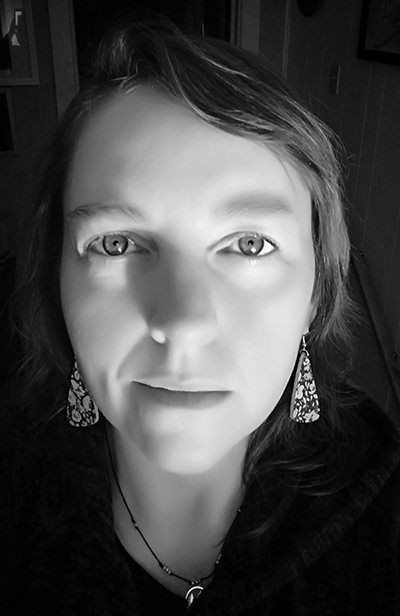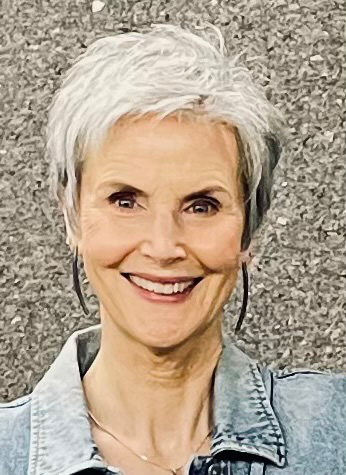At twenty-one years old, Gia Kumari finally leaves the Delhi orphanage where she was raised. With few prospects for the future, she receives an unexpected invitation from a stranger named Sonia Shah, in San Francisco: an internship at Sonia’s weddings and event company. Jia and America. It’s love at first sight as she navigates an unfamiliar but irresistible new world of firsts.
It’s Gia’s first real job: her first meeting with her only known family, her uncle Mohammed Khan, and her first romance, with Sonia’s quirky yet charming stepson, Adi. But it might be too good to be true. Gia’s newfound happiness is unfolding in the shadow of a terrible family secret, the impact of which is still being felt in a place Gia now calls home. To save what matters most, Gia must come to terms with a tragic past she’s only beginning to understand—and a lifetime of lies she must learn to forgive.
Publisher: Lake Union Publishing (September 19, 2023)
ISBN-10: 1662509219
ISBN-13: 978-1662509216
ASIN: B0BQNBFVBR
Print Length: 283 pages
About the Author, Anoop Judge
Born and raised in New Delhi, Anoop is the author of four novels, THE RUMMY CLUB which won the 2015 Beverly Hills Book Award, THE AWAKENING OF MEENA RAWAT, an excerpt of which was nominated for the 2019 Pushcart Prize, NO ORDINARY THURSDAY, and MERCY and GRACE.
Her essays and short stories have appeared in Green Hills Literary Lantern, Rigorous Journal, Lumiere Review, DoubleBack Review, and the Ornament anthology, among others.
Anoop calls herself a “recovering litigator”—she worked in state and federal courts for many years before she replaced legal briefs with fictional tales. She holds an MFA from St. Mary’s College of California and was the recipient of the 2021 Advisory Board Award and the 2023 Alumni Scholarship.
She lives in Pleasanton, California, with her husband, and is the mother of two admirable young adults.
You can find her online at:
--- Interview by Jodi Webb
WOW: Congratulations on Mercy and Grace, a novel that explores complicated family dynamics. Why do you revisit this theme through all your books?
Anoop: What a great question! I find that family dynamics are universally relatable. Nearly everyone has some experience with family, whether positive, negative, or complex, making these themes widely appealing to readers.
Also, exploring family dynamics allows for the development of multi-dimensional characters, and helps in driving intricate plots. The conflicts and resolutions within a family can form the backbone of a compelling narrative.
I also find that through the lens of family, I can explore broader social, cultural, and psychological themes, offering commentary on issues like tradition, societal expectations, and the human condition, as I did in my latest novel, Mercy and Grace.
WOW: Mercy and Grace has two intertwined plots in different time periods. What was the biggest challenge about writing about characters in two time periods?
Anoop: Writing about characters in two time periods presents several significant challenges, the most important being to maintain authenticity in each time period. As the author I had to accurately depict the cultural, social, and historical contexts of each time period. This demands extensive research and attention to detail to avoid anachronisms and inaccuracies.
Crafting smooth transitions between different time periods in a way that is clear and engaging for the reader also requires skillful narrative structuring, and I relied on my editorial team to help create those seamless jumps between different timelines.
Plot Interconnectivity is vital to keep in mind too. Ensuring that events in one time period meaningfully impact or resonate with events in the other can be difficult but is crucial for a cohesive narrative.
WOW: You describe yourself as a recovering litigator. Tell us about your journey from litigator to writer.
Anoop: I was raised in a middle-class family in New Delhi, India, where education was key, fresh pomfret fish for dinner was a treat, and budget-conscious holidays in hill stations defined our summers. As a young girl, I was expected to apply myself at college, get a job that would allow me to be financially self-reliant, get married, and have kids—in that order.
Given this worldview, “writing” was a bourgeois activity, encouraged by my mom, an avid fan of Reader’s Digest and Harlequin romances. My mom loved stories, and she made up endless tales on the fly—Ravan, the demon who was afraid of cake, the fairy who couldn’t find her magic, the princess who was forced to marry the tyrannical prince and was rescued just in time by the pauper she loved.
She gave me those things, and that’s how I survived adolescence. My command over the English language made me appear smarter than I was—growing up in post-colonial Delhi, where your zip code and what your Dad did for a living was all that mattered, the only way for a young woman to stand out was her chutzpah and her ability to flaunt her knowledge of big, blocky English words.
Soon, I had a prolific output. At age eleven, my mother made my brother and I compete in a war of words—we had to write an essay about an out-of-town family wedding we’d attended—and, from the way my mom’s dark eyes shone as she read my offering, I knew I’d scored. In my teens, I spilled my hormonal angst over pages and pages of a daily journal that began with the salutation, “Dear, Diary.” One summer, I did an internship at a leading advertising agency as a copywriter, coming up with pithy slogans and jingles. After high school, when I enrolled in Hindu College at Delhi University to pursue a bachelor’s degree in English Literature, no one in my family was surprised.
But, convention dictated that I procure a practical degree that would result in a paying job. This catapulted me into law school after graduation. Writing remained my first love, though—while pursuing my legal studies, I wrote a column for ‘Mid-day,’ a weekly newspaper, titled ‘University Beat,’ and I was a correspondent for All India Radio, submitting weekly news stories that were read aloud on air. While in my second year at law school, I was approached by a publishing house (Twenty-Twenty Media) to write a Dummies—style book for recent college graduates on the legal profession titled “Law: What’s It All About and How to Get in.”
When a mess of typewritten pages—loosely bound by a haldi-stained pink ribbon—of dozens of interviews with notable legal experts in New Delhi became a published book of 92 pages, I couldn’t get over the shock of it. It was an eye-opening experience to see how good editing and an attractive book cover could transform my word vomit into a brilliantly-structured, polished work. I knew then that when I had the time, I would write books that appealed me to as a reader—fiction that wove imaginary worlds and left me spellbound with the magic of it.
WOW: So when did you make the jump to fiction writer?
Anoop: When I met and married my husband and immigrated to the United States, I continued to pursue my legal studies, acquiring both a JD and an Esq. at the end of my name. Writing legal briefs that would persuade judges opened my critical eye and taught me how to turn a good phrase. When I left law practice and stayed home to raise my kids, I began writing in earnest.
Ten years ago, my dream came true with the launch of my first novel
The Rummy Club that gave voice through my story to the East-Indian diaspora in the context of 21st century America. In the last ten years, I’ve continued to learn the craft of fiction and write stories that have been published in many literary journals.
The themes of recreating identity, immigration, changing roles of women, and racial conflict deeply resonate with me and inspire me to write. I am passionate about applying these themes to my background and the traditions I grew up with, as well as the new traditions I have co-created with my first-generation children while living in America.
I’m fortunate that I have a literary agent who believes in my stories, and although the publishing industry is fickle—my fifth novel narrating the story of two estranged sisters based on colorism—didn’t receive much traction from acquiring editors forcing me to shelve it, I continue to write. As Anne Frank said, “I can shake off everything as I write; my sorrows disappear, my courage is reborn."
(Excerpted from Anoop Judge’s Nov 1, 2020 blog post.)
WOW: I admire your ability to move past your fifth novel and continue creating. What is the most rewarding part of writing?
Anoop: For me, the most rewarding part of writing is the sense of accomplishment and the ability to express myself creatively. It’s fulfilling to see a germ of an idea take shape on paper, and finally become a published novel displayed in book store. When readers connect with you, and bring their own perspectives to your novel, that’s an additional source of joy.
WOW: Can you tell us a little about your next book?
Anoop: I’m working on a novel about an open marriage and what happens when the carefully laid out rules are broken. Here’s a short blurb:
Having an open marriage has helped to bring new life into Uma and Vikram’s relationship. All they have to do is follow a couple of simple rules: One night stands only, and no dates with anyone they know. But sleeping with strangers can get lonely and, when Uma’s latest date turns out to be Deepesh, the husband of her best friend who she sees almost every day, Binny, Uma is initially reluctant until she is reminded how well they have always got along. Dates can be awkward and it’s nice to be out with someone likes.
Still, did she really mean to end up sleeping with him?
Now Deepesh, who isn’t in an open marriage with Binny, after all, has become infatuated with Uma. What will he do next? Will he expose what has happened and perhaps destroy her marriage, her relationship with her daughter, her closest friendship, and possibly even her career as a local realtor? Or will he go even further?
And, when Uma finds out that she is pregnant with Deepesh’s child, what will be the fallout then?
WOW: Thanks for that peek at what’s next. It sounds like a real page turner!
-- Blog Tour Calendar
February 12th @ The Muffin
Join us as we celebrate the launch of Anoop Judge's book Mercy and Grace. Read an interview with the author and enter to win a copy of her book.
February 13th @ Rockin Book Reviews
Visit Lu Ann's blog for her review of Mercy and Grace. You can also win a copy of the book.
February 15th @ The Shaggy Shepherd
Visit Isabelle's blog for a guest post by Anoop about creating compelling characters.
February 16th @ What is That Book About
Join Michelle for her spotlight of Mercy and Grace.
February 17th @ Silver's Review
Visit Elizabeth's blog for her spotlight of Mercy and Grace.
February 19th @ A Wonderful World of Books
Visit Joy's blog for a guest post by Anoop Judge about Indian wedding traditions.
February 21st @ Jill Sheets' blog
Visit Jill's blog for an interview with author Anoop Judge.
February 22nd @ Knotty Needle
Check out Judy's blog for her review of Mercy and Grace.
February 25th @ Chapter Break
Visit Julie's blog for a guest post by Anoop Judge about her journey from litigator to writer.
February 27th @ Lisa Haselton's Reviews & Interviews
Join Lisa for her interview with Anoop Judge about her writing journey.
February 29th @ The Faerie Review
Join Lily for her spotlight of Mercy and Grace.
March 3rd @ Boots, Shoes, and Fashion
Join Linda for her in-depth interview with Anoop Judge about her book Mercy and Grace.
March 4th @ One Writer's Journey
Visit Sue's blog for her review of Mercy and Grace by Anoop Judge.
March 5th @ Word Magic
Join Fiona's blog for a guest post by Anoop Judge about managing the call with a literary agent.
March 7th @ A Storybook World
Join Deirdra for her spotlight of Mercy and Grace.
March 10th @ Michelle Cornish' blog
Visit Michelle's blog for her review of Mercy and Grace.
March 12th @ Plain Spoken Pen
Join Lisa for her review of Mercy and Grace.
March 13th @ Sara Trimble's blog
Join Sara for her review of Mercy and Grace. You also have the chance to win a copy of the book too!
March 15th @ Choices
Visit Madeline's blog for a guest post by Anoop Judge about writing your way through grief.
March 17th @ Boys' Moms Reads
Visit Karen's blog for her review of Mercy and Grace by Anoop Judge.
March 17th @ Nikki's Book Reviews
Visit Nikki's blog for a review of Mercy and Grace.
***** BOOK GIVEAWAY *****
Enter to win a print copy of Mercy and Grace by Anoop Judge! Fill out the Rafflecopter form below for a chance to win. The giveaway ends February 25th at 11:59 pm CT. We will randomly draw a winner the next day via Rafflecopter and follow up via email. Good luck!

















